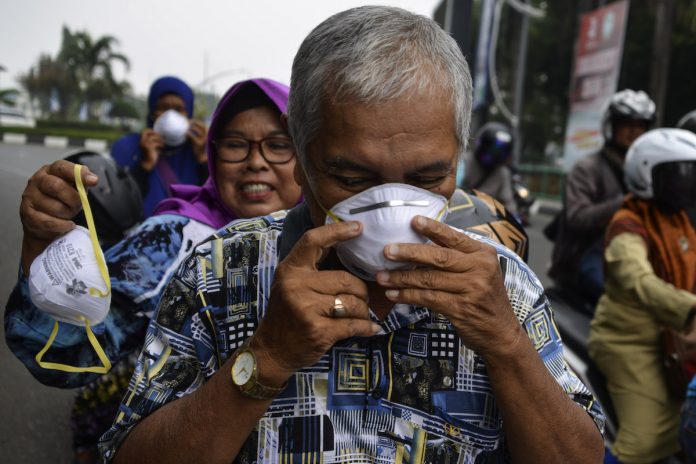Southeast Asian human rights officials have urged governments to step up cross-border collaboration to end harmful haze drifting across the region.
Four members of the Association of Southeast Asian Nation’s (ASEAN) human rights body have called for effective implementation of a regional agreement on trans-boundary haze that blankets the area almost annually.
Indonesia and Malaysia have been hit hard by the smoke in recent months caused by clearance of land and forests for farming and palm oil plantations. Schools have been forced to close, while hospitals and clinics have struggled to cope with the number of people suffering respiratory illnesses and eye infections.
Both countries have blamed each other for the problem, prompting calls for greater cooperation, and for tougher action to punish individual companies and farmers responsible for the fires.
“While we recognize ASEAN member states’ efforts to address the issue, it is crucial that stronger collaborative action is taken to mitigate the haze and prevent it from occurring again in the future,” the members, appointed to the ASEAN Intergovernmental Commission on Human Rights, said in a letter sent to media.
“It is clear that the impact of the pollution is truly regional,” the members from Malaysia, Myanmar, Singapore and Thailand said on Oct. 14, stressing that countries should “fully and effectively” implement the regional treaty.
ASEAN nations adopted the haze agreement in 2002, that included prevention measures and monitoring initiatives, after smog smothered the region. But researchers say some nations have been slow to implement measures, while Indonesia did not ratify the pact for some 10 years.
“For many years, the haze has affected air quality in Indonesia, Malaysia, Brunei Darussalam, Singapore and parts of Thailand and the Philippines. Last year, poor air quality in the Mekong subregion also affected Myanmar, Laos, Vietnam and Thailand,” the commission members said.
The commission, which normally operates by consensus, promotes human rights in the region for the 10-nation ASEAN bloc, although it has no powers to investigate rights violations.
This year’s haze is the worst to hit the region since 2015, with hundreds of fire alerts in Indonesia’s Kalimantan and Sumatra areas in September.
The 2015 haze was linked to more than 100,000 premature deaths in Indonesia, Malaysia and Singapore, according to a Harvard University study.
Indonesia and Malaysia are the world’s biggest producers of palm oil, an ingredient in a huge range of products from soap to ice cream. Environmentalists and researchers have raised alarm about deforestation to make way for plantations.









